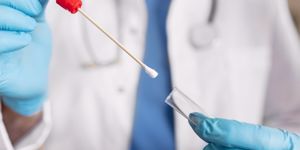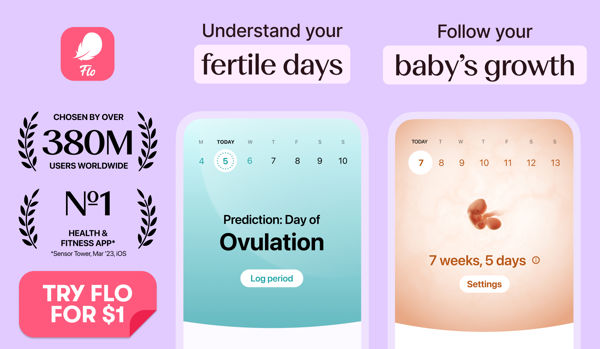Group B Streptococcus or GBS testing is done routinely in some countries, including the United States, but that does not mean you must consent. First, you need to know and understand the risks and benefits of the testing. Then, you can make a more informed choice.
What is Group B Streptococcus
GBS is a bacteria that lives inside all individuals, and at some point in one’s life, it can migrate down into the vagina, rectum, or urinary tract. Usually, GBS does not cause any issues. Still, if it is colonized rectally or vaginally during labor and not treated with antibiotics, there is a 1-2% chance that the baby will develop Early GBS disease.
For 98-99% of the infants whose birthing parent tests positive for GBS, Early GBS disease will not be a problem. Although rare, Early GBS disease can result in a severe illness that can lead to an extensive stay in the NICU.
Why Is GBS Harmful to Newborns?
The reason that GBS can be so harmful for newborns is that their immune system has not yet begun functioning at its highest rate.
There are two more common types of GBS disease in newborns: Early Onset GBS Disease, which occurs in the first seven days of life, and Late Onset GBS Disease, which can occur anywhere from one week to three months old.
What Is The GBS Test?
The two most common ways to approach GBS are by either universal screening, which is commonly done in the United States, or looking for other risk factors of GBS and screening an individual. Some of the risk factors that could point someone toward testing for GBS would be the occurrence of GBS at any point in the pregnancy, previous birth with an infant who contracted Early GBS Disease, preterm labor, fever during labor, and the waters being broken for over 18 hours.
The GBS screening test is straightforward and can even be done by the individual. You simply take the swab, insert it vaginally, swab each wall of the vagina, run it along the perineum, and swab the external part of the rectum.
This test is then sent to the lab, and results are usually back within one week. If your results come back negative, then nothing changes. You just continue through pregnancy, birth, and postpartum like normal. If your results come back positive, you have some decisions about how you will prevent Early GBS Disease.
What If My Test Is Positive?
The most common way providers prevent Early GBS Disease is by giving an antibiotic every four hours throughout labor, and research supports this prevention. Other individuals will choose to do nothing, which is another valid option.
I often encourage those who do not want to do anything to reevaluate throughout their birth. For example, if their waters are broken for over 18 hours without the baby being there, it might be something to consider. Some preventative options have less research backing them, but antidotally, they seem to work well. These include spraying colloidal silver into the baby’s mouth and nose immediately postpartum, using Garlic vaginally, and taking a probiotic with multiple strains in the last weeks of pregnancy.
Research does show us that babies born in the water have a less likely chance of getting Early GBS Disease than doing a Chlorhexidine or Hibiclense treatment on the vagina can lessen the opportunity of Early GBS Disease and typically lasts between 3-6 hours.
Some individuals worry about the impacts of things like antibiotics on their gut health and their baby’s gut health, which makes a valid point. Taking Probiotics can help rebuild the gut flora but does not solve how the microbiome changes during labor and birth.
Research shows that IV antibiotics given during birth impact the infant’s microbiome, but this usually only lasts a short time. There are also risks and benefits to the other treatments. For example, there is not much research backing Garlic, colloidal silver, and probiotic use for prevention, but there is quite a bit of anecdotal evidence. Chlorhexidine or Hibiclense treatment works well, but it clears out both the good and bad microbiomes like antibiotics.
Should I Get Tested?
Some individuals are opposed to GBS Testing routinely because many other countries do not routinely screen, and there are very few infants who get this life-altering disease. On the other hand, if the result can be so scary, why not take precautions to keep your baby safe at all costs?
Even though most of my clients choose not to treat their GBS, I encourage getting tested.
The reason I do this is because it provides my clients who transfer during birth or postpartum more ease since doctors will treat an untested baby as though they are positive, which can be highly invasive. I also encourage it because it provides more information for both the birthing parents and the care provider.
For most, this procedure is simple and not super invasive, and because of that, I feel it is an excellent screening to run if someone wants it done. I also love that you can swab yourself. Taking charge of your own prenatal care is a great way to feel empowered during your pregnancy.






